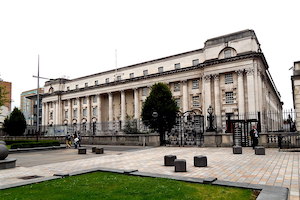 On this blog last year, I discussed the circumstances in which a university student could challenge a grade in court. Just before Christmas, the Northern Ireland High Court handed down a very important judgment on this issue. In Re Croskery [2010] NIQB 129 (8 December 2010), the applicant, Andrew Croskery, sought leave to apply for judicial review against a refusal by Queens University Belfast to reclassify his degree. In the Queen’s Bench Division of the Northern Ireland High Court (pictured left), Treacy J denied the application. In cases of this kind, where an objection is simply to matters of academic judgment, the courts show great deference to such matters, and are very slow to interfere. The deference is stated in different ways in the cases, and the parties accepted a strong form of it in Croskery. As Treacy J held
On this blog last year, I discussed the circumstances in which a university student could challenge a grade in court. Just before Christmas, the Northern Ireland High Court handed down a very important judgment on this issue. In Re Croskery [2010] NIQB 129 (8 December 2010), the applicant, Andrew Croskery, sought leave to apply for judicial review against a refusal by Queens University Belfast to reclassify his degree. In the Queen’s Bench Division of the Northern Ireland High Court (pictured left), Treacy J denied the application. In cases of this kind, where an objection is simply to matters of academic judgment, the courts show great deference to such matters, and are very slow to interfere. The deference is stated in different ways in the cases, and the parties accepted a strong form of it in Croskery. As Treacy J held
…on the authority of Re Wislang’s Application [1984] NI 63 (.doc) and Thomas v University of Bradford [1987] AC 795 (.doc) the matters in dispute would presently fall exclusively within the visitorial jurisdiction of the university – subject only to the possibility that any ultimate decision of the Board of Visitors might itself be judicially reviewable.





 Following on from my post on
Following on from my post on